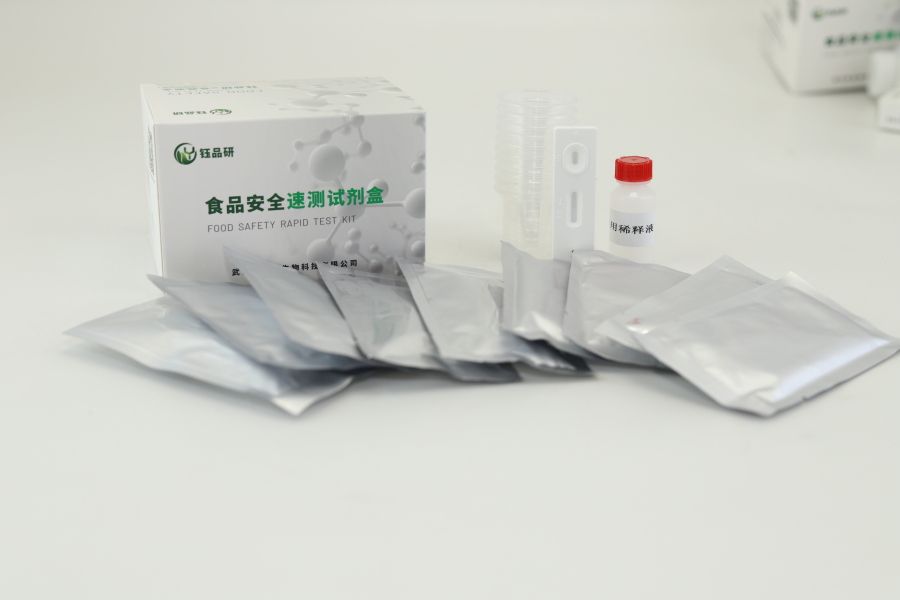What is the Maleic Hydrazide Colloidal Gold Rapid Detection Card? In simple terms, it is a food detection tool developed based on colloidal gold immunochromatography technology, mainly used for rapid screening of the presence of maleic hydrazide (also known as cyanidin) in food. This substance is a plant growth regulator that has been used to inhibit the germination of tuber crops such as potatoes and onions, but excessive use may pose latent risks to human health, so there are strict safety standards for residues in food.
From the principle, the core of the detection card is the specific antibody labeled by colloidal gold. When the sample (such as food extract) is dropped into the well of the test card, it will move along the test strip. If the sample contains maleic hydrazide, it will combine with the colloidal gold-labeled antibody to form a complex. When the complex reaches the detection line (T-line), the unbound colloidal gold marker will continue to move to the quality control line (C-line), and finally form a color-developing band on the T-line and C. If the T-line is colored, it means that the content of maleic hydrazide in the sample is below the detection limit; if the T-line is not colored, the content exceeds the detection limit.
Compared with traditional detection methods (such as high performance liquid chromatography), the advantages of this rapid detection card are very obvious: first, the speed is fast, the whole detection process only takes 10-15 minutes, no need for complex instruments; secondly, the operation is simple, no professional training, ordinary personnel can complete according to the instructions; secondly, the cost is low, suitable for batch sample screening; finally, the accuracy is high, the detection limit can usually meet the national standard requirements, can be used as a primary screening tool to assist in judging whether the sample is qualified.
In the application scenario, it is widely used in food production enterprises for raw material acceptance, work in progress quality control, market supervision departments on-site rapid sampling, and third-party testing agencies for batch sample screening. Through timely detection of maleic hydrazide residues in food, it can effectively prevent substandard food from entering the market and escort consumers' food safety.


